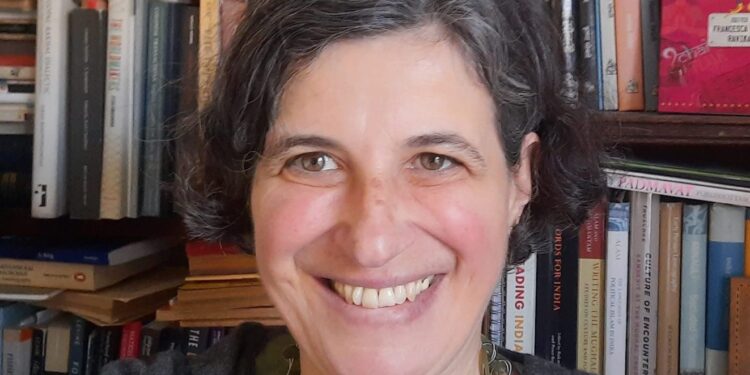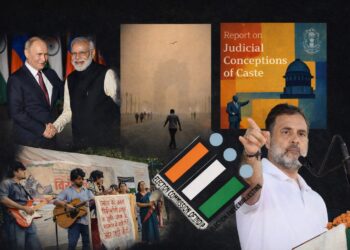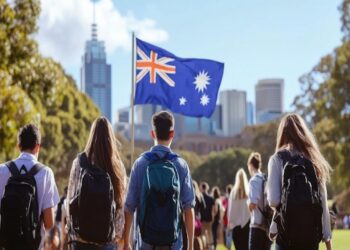Professor Francesca Orsini, a globally renowned scholar of Hindi literature, was deported from Delhi’s Indira Gandhi International Airport on 20 October despite holding a valid five-year e-visa, sparking outrage among academics and intellectuals who have condemned the move as an attack on scholarship.
The Italian academic, who is professor emerita at the School of Oriental and African Studies (SOAS) at the University of London, arrived in Delhi via Hong Kong after attending an academic conference in China, but was immediately informed by immigration authorities that she would be deported. Her husband, Cambridge professor emeritus Peter Kornicki, confirmed that immigration officials withheld her passport and provided no explanation for the deportation.
Speaking from Delhi airport before her deportation, Orsini said: “I am being deported. That is all I know”. Professor Kornicki told ThePrint that his wife “was extremely upset to be refused entry to India, which has been the subject of her studies for more than 40 years. She is also bewildered, as no explanation was given to her”.
Government sources later claimed that Orsini had been blacklisted since March 2025 for allegedly violating visa conditions, with officials stating she had engaged in unauthorised research activities whilst visiting on a tourist visa. However, when it was pointed out that she was visiting on a tourist visa to meet friends, officials maintained that a prior pattern of visa violations had been observed.
The explanation has drawn sharp criticism from academics who question what constitutes “research” for a scholar of Hindi. Siddharth Varadarajan, founding editor of The Wire, wrote on X that unnamed government officials were suggesting Orsini was blacklisted for conducting research whilst on a tourist visa. “Think about this for a second,” he wrote. “Orsini is a professor of Hindi, her most celebrated work is on the Hindi public sphere. So what these officials are suggesting is that if she comes to India on a tourist visa, she cannot speak to people in Hindi, cannot meet friends who are Hindi scholars, cannot watch a Hindi play or attend a mushaira or Kavi sammelan as all this would be considered ‘research’!”
According to her husband, “She was visiting India for a number of purposes, including research and meeting a Hindi woman novelist, but she was not planning to attend any academic event or seminar”. He revealed that she had been working on an English translation of a novel by a Hindi woman novelist living in Bhopal and “was going to visit her to clear up a few queries about her translation”.
Distinguished academic career
Orsini is the author of the highly regarded 2002 book, The Hindi Public Sphere 1920-1940: Language and Literature in the Age of Nationalism, and other academic works. She is a Fellow of the British Academy, one of the highest academic honours in the UK for humanities scholars.
Having studied at the Central Institute of Hindi and Jawaharlal Nehru University in Delhi, followed by a PhD at SOAS, she has explored Hindi literary journals from the 1920s and 1930s. Her research spans the Hindi public sphere, book history, multilingualism, and Hinglish. She is currently completing a book on Awadh’s literary history.
Scholarly outrage
The deportation has prompted fierce criticism from prominent Indian and international academics. Historian Ramachandra Guha described Orsini as “a great scholar of Indian literature, whose work has richly illuminated our understanding of our own cultural heritage. To deport her without reason is the mark of a government that is insecure, paranoid, and even stupid.”
Historian and novelist Mukul Kesavan highlighted the irony of the situation, writing: “The visceral hostility of the NDA government to scholars and scholarship is something to behold. A government ideologically committed to Hindi has banned Francesca Orsini. You can’t make this up.”
Apoorvanand, professor of Hindi at Delhi University, described Orsini’s deportation as “shocking” and a “direct attack on scholarship”, noting that “her visits to India have been entirely for scholarly purposes”.
A senior Delhi University professor, speaking anonymously to ThePrint, emphasised that Orsini “is internationally renowned for her scholarship. This was one of her annual visits to India for research. She has trained many scholars in Hindi and Urdu”. The professor added that she is “a purely academic scholar who has never been involved in any public criticism of the incumbent government”.
Pattern of deportations
Orsini is perhaps the fourth foreign scholar with a valid visa to be denied entry in recent years. In March 2022, Britain-based anthropologist Filippo Osella was stopped at Thiruvananthapuram airport and deported, whilst British architecture professor Lindsay Bremner was also deported the same year, both without any reason being provided.
In 2024, UK-based Kashmiri academic Nitasha Kaul was denied entry at Bengaluru airport where she had arrived for a conference organised by the Karnataka government, and her OCI card was subsequently cancelled. The government has also cancelled the OCI card of Sweden-based academic Ashok Swain, a social media critic of the Bharatiya Janata Party’s politics, though Swain secured relief from the Delhi High Court.
Whilst the numbers are not high, the randomness and unpredictability of these deportations are likely to have a chilling effect on foreign scholars.
Academic freedom concerns
The deportation comes days after a new global report noted that India has become a key example of how academic freedom is shrinking, with universities and political groups limiting free expression on campuses.
The report highlighted that many universities now require prior approval for protests, discussions, or slogans, whilst police have cracked down on student demonstrations. Examples include violence against a Dalit rights advocate at Sri Venkateswara University, the cancellation of seminars with Middle Eastern diplomats at Jawaharlal Nehru University, and the disruption of a film festival in Udaipur by members of the Rashtriya Swayamsevak Sangh.
The incident has raised questions about India’s treatment of international scholars and the future of academic exchange, with many academics expressing concern about the apparent arbitrariness of the immigration decisions and their impact on scholarly collaboration.











